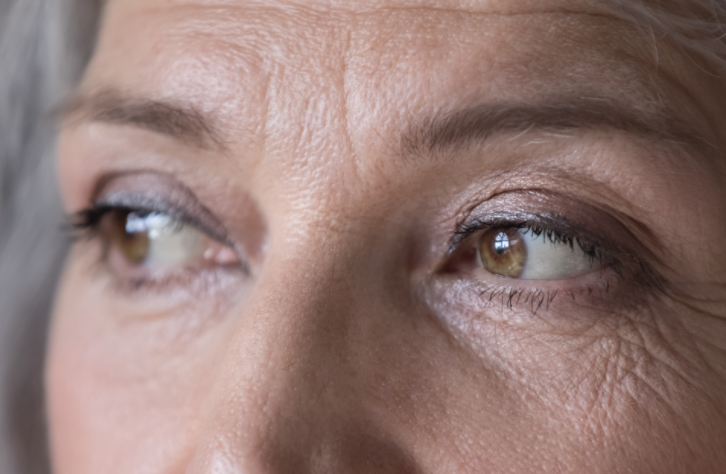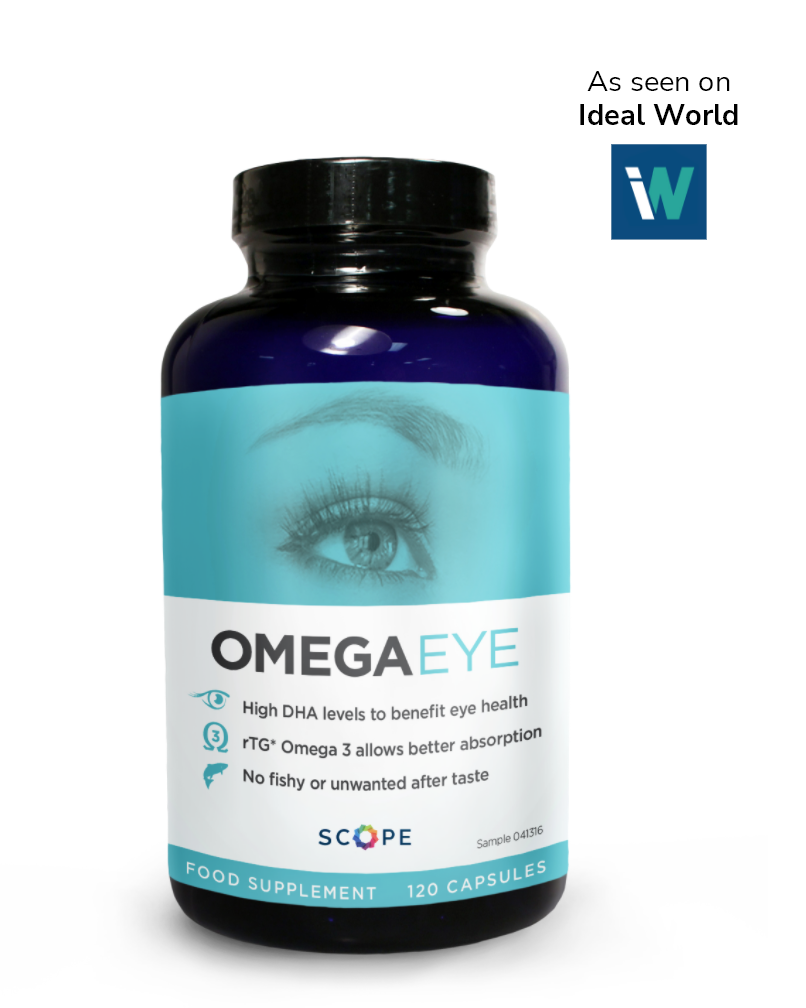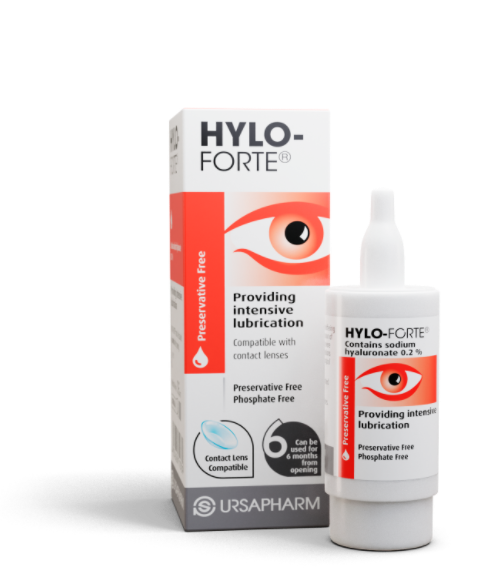Are you doing enough to help maintain your vision?
At a minimum you should be prioritising good nutrition, circulation and muscle function as you age. In addition to this Doctor's recommend taking an Omega-3 supplement, like Omega Eye with high levels of DHA.



A scientifically formulated food supplement to support your eye health. Omega Eye offers an effective and safe way to maintain a healthy vision naturally.
- High DHA levels to benefit eye health
- rTG* Omega 3 allows better absorption
- No fishy or unwanted after taste

Save The Date For Our Ideal World TV Debut
Are you getting enough Omega-3 in your diet?
Omega-3 and Omega-6 are vital nutrients that we cannot make or store in sufficient quantities to meet our body’s needs.
Virtually every area of the human body is susceptible to problems if the balance of the two families of essential fatty acids (EFAs) is disrupted.
It is recognised by healthcare professionals that general health would be greatly enhanced by the reduction of Omega-6 EFA consumption and the increase of Omega-3 EFA consumption to restore balance to the natural ratio
of 1:1.1
Omega Eye Daily Dose for Adults

Four Omega Eye capsules with food, taken orally, once a day

One 5 ml spoonful of Omega Eye liquid with food, taken orally, once a day

We recommend taking Omega Eye daily for at least 6 to 12 weeks2 to see the initial benefits. It is essential that you continue to take Omega Eye regularly for continued optimum results.
A Healthcare Professional's perspective on Omega Eye
"I have been recommending Omega Eye to those attending my Dry Eye Clinics for the past 10 years, with positive feedback. People often struggle to obtain enough omega 3 through their diets and so supplementation with a high-quality omega 3 formulation plays an important role in my management recommendations. On a personal note, I am happy to share that I feel taking Omega Eye daily has significantly helped with my dry eye symptoms."
Mandy Davidson BSc (Hons) MCOptom
Optometrist with a special interest in Dry Eye Disease and member of the SCOPE Medical Team
Balancing Omega 3 vs Omega 6
Omega-3
Essential to life and good health, Omega-3 EPA and DHA contribute to normal blood pressure and healthy blood triglyceride levels.
Omega-6
Essential to life and good health. However, too much fat can be harmful to health if consumed in excessive amounts.
People normally consume 20 to 50 times more Omega-6s than Omega-3s in their diets.3
Unnatural Ratio

Natural Ratio

Not all Omega-3 Fish Oil Supplements are the same.
Omega Eye has a SPECIALISED manufacturing process to naturally deliver a highly absorbable form of Omega-3 oil.
Fish contains natural Omega-3 oil in its triglyceride (T) form
The fish is pressed
UN-PURIFIED Triglyceride (T) Omega-3 fish oil is collected
The oil is then purified by removing contaminants through esterification, which uses alcohol
Ethyl Ester Omega-3 fish oil is produced. This oil contains alcohol, therefore, it is NOT in its Triglyceride/ natural form, however, it is purified.
Most fish oil is sold in this ethyl ester form, which is poorly absorbed by the body and can be potentially harmful in large quantities
The alcohol from the Omega-3 fish oil is removed through re-esterification
OMEGA EYE - Purified Triglyceride (T)/natural Omega-3 fish oil (high in DHA & EPA) is formed

Customer Reviews of Omega Eye
"This was recommended by my ophthalmologist. I couldn’t find it at first. I began taking the golden gels around 12 -13 weeks and I am improving, you need to stick with it, I did a bit of research too, I now know that the re-esterified triglycerides omegas are the best. I'm happy. No aftertaste, no fish to cook making my kitchen smelly. A glass of water and they are easy to swallow."
Alison 57
"This Omega Eye product really is good Takes a few months to sink in but is so much better than other supplements"
Natalia 43
"I have been taking this product for 17 months now and everything just feels better. I take 1 capsule 4 times a day with my food even if it is a little snack and sometimes even without food. I always take one a few hours before bedtime. Let my body work its magic whilst I am sleeping"
Josephine 64
Omega Eye Frequently Asked Questions
Capsules can be taken during the day when is convenient to suit your lifestyle and mealtimes intake.
All 4 capsules may be taken together, but if someone has digestive difficulties it is best to take 1 capsule per meal, spread it throughout the day to support absorption.
We recommend you take the soft gels with food as it helps digestion and absorption of the Omega 3 oils, but if needed, there’s no harm in taking the capsules on an empty stomach either.
We recommend you take the soft gels with water or other fluids to help swallow the capsules.
Yes, personal choice, If you find this works best and fits into your mealtimes – lifestyle.
Taking the soft gels with a fish based meal is fine. Depending on the type of fish the Omega 3 content may be quite low, taking the full dose of Omega Eye ensures the therapeutic dose needed in dry eye disease is supplied.
There is no need to double up the next day.
If someone has digestive difficulties they might experience fullness, indigestion, heartburn and runny stools – in which case it is best to split the dose and take 1 capsule per meal / snack. Someone with gallstones might experience cramps after taking any supplements or even food with high fat content – in which case they can try to split the dose to 1 capsule per meal / snack.
Taking high doses of omega-3 fatty acids from fish oil can modestly decrease platelet aggregation, so theoretically anticoagulant medications along with high doses of fish oils may increase the risk of bleeding. If someone is on blood thinners like warfarin, they need to monitor their INR levels.
Yes, it is safe to take in pregnancy, but we always advise customers to check with their healthcare professional for extra precaution due to individual medical history.
Yes, this should be fine. Have you tried Hycosan and Optase preservative free drops.
Omega 3 is needed in every cell of the body and it benefts all our systems. It may take over 3 months to saturate thebody and notice the difference in dry eye disease, depending on the individual’s diet and health status. Someone with a chronic inflammatory disorder and / or on a diet low in vegetables, fruits, nuts and seeds take longer to feel the effects. Some recognised benefits in their skin, hair nails before it showed benefits in their eye condition.
Omega 3 and Omega 6 are vital nutrients that we can not make or store in sufficient quantities to meet our bodies daily needs.
Virtually every area of the human body is susceptible to problems if the balance of the two families of essential fatty acids EFA is disrupted. Imbalances can lead to excess inflammation.
They have a slight citrus taste, and thanks to the re-esterification they will result in better absorption and minimal aftertaste or fishy burps.
Store at room temperature with the lid tightly shut.
The product should give no side effects if the correct daily dose is taken. Taking more than 4 capsules / day may result in digestive discomforts, such as indigestion, reflux, loose stools and flatulence, depending on individual digestive abilities.
Clinical studies show many health benefits of Omega 3 fish oil supplementation – it literally benefits every cell and organ in the body, as we need it for cell membrane health and hormone production. This way it may help in regulating inflammation, support nutrient supply, nervous system function, cardiovascular health, liver function, moisturising skin, improving hair and nail quality, etc.
Many other, often cheaper products are in an ethyl-esther form; with one single fatty acid attached to an alcohol molecule, which is poorly absorbed by the body and may cause fishy burps. Scope Omega Eye – does not compromise on quality and ensures our Omega Eye goes through a purifying process removing the alcohol and is re-shaped into the triglyceride form, the way it was originally in the fish, making it highly absorbable and non-irritating in the digestive tract.
There is no harm taking Omega Eye for long term, because of its purity, absorbability, and our ever-increasing need for more Omega 3 dietary intake to help balance pro-inflammatory diets and inflammatory conditions.
Currently no. But do check our website periodically for updates.
Yes, Omega Eye contains 25mcg (microgram) of Vitamin D in the 4 capsules.
The upper level for Vitamin D is 50mcg and the tolerable maximum level is 100mcg per day. Taking vitamin D for long periods of time in doses higher than 100 mcg daily is possibly unsafe and may cause very high levels of calcium in the blood, which then may lead to heart rhythm problems, calcify soft tissues such as blood vessels, cause damage to the kidneys. Chronic high levels supplementation may cause nausea, dry mouth, vomiting, confusion and weakness.
Yes, Omega Eye may be taken together with other supplements, such as multivitamins – just make sure the customer does not take more than 50mcg of vitamin D per day. There is a very good dose of Vitamin D in Omega Eye, so unless the person is severely deficient in Vitamin D, there s no need to take extra vitamin D. supplements.
Taking high doses of omega-3 fatty acids from fish oil can modestly decrease platelet aggregation, so theoretically anticoagulant medications along with high doses of fish oils may increase the risk of bleeding. If someone is on blood thinners like warfarin, they need to monitor their INR levels.
- Simopoulos – Experimental Biology and Medicine, 2008
- Epitropoulos, AT, et al. Effect of Oral Re-esterifi ed Omega-3 Nutritional Supplementation on Dry Eyes.
Cornea. 2016;35(9):1185–1191. - Mercola, 2016. Your Practical Guide to Omega-3 Benefi ts and Supplementation. [ONLINE]
Available at: http://articles.mercola.com/omega-3.aspx. [Accessed 30 August 2016].


